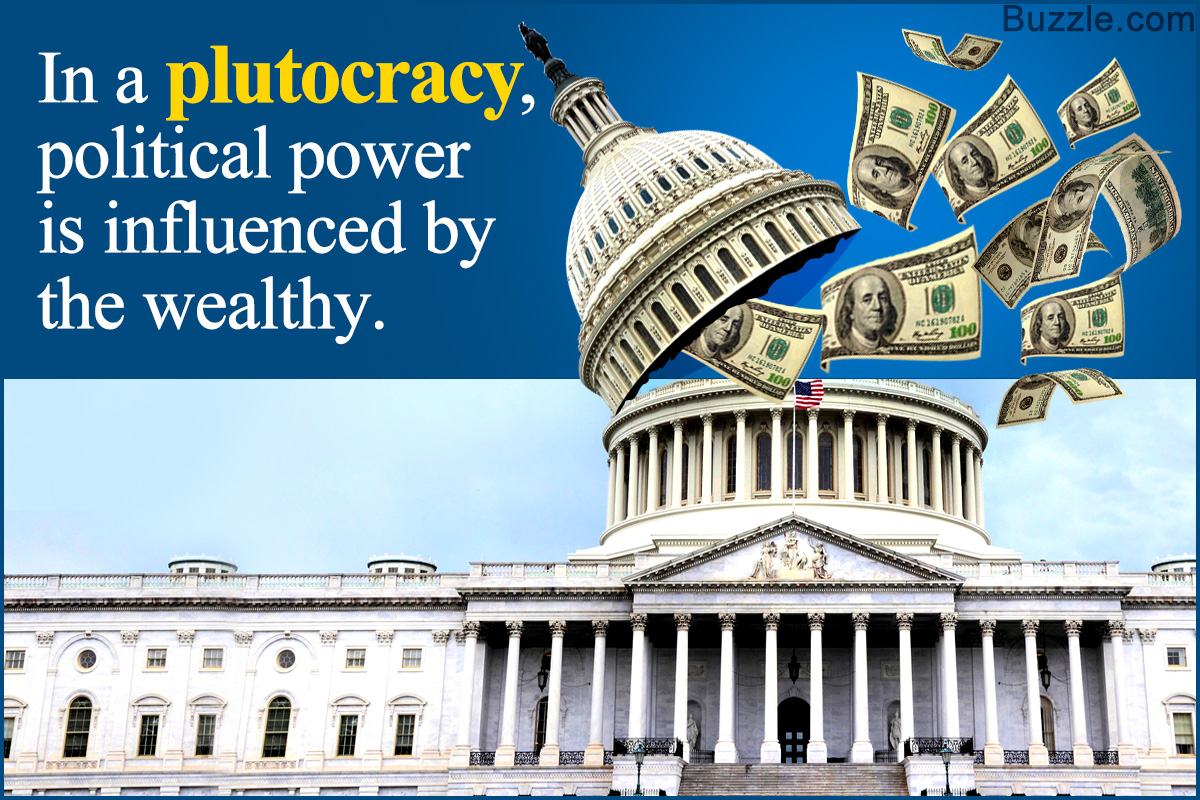


Controls and obligations include filing an annual IRS form and (since 1969) paying an annual excise tax of up to 2 percent on net investment income. They may act with good intentions, but they define “good.” The arrangement remains thoroughly plutocratic: it is the exercise of wealth-derived power in the public sphere with minimal democratic controls and civic obligations.
#Plutocracy government definition how to
One hundred years later, big philanthropy still aims to solve the world’s problems-with foundation trustees deciding what is a problem and how to fix it. But rooting out social problems was one priority. They funded the “hard” sciences, projects in international relations, and more. Of course, the new general-purpose foundations didn’t focus exclusively on social issues. The foundation trustees seemed unaware that social problems are too multifaceted, too historically rooted, and too entangled in politics and the economy to conform to the medical model. Private philanthropies planned to do the same for such social ills as poverty and illiteracy: sponsor research on a problem, finance the design of a remedy, and pay for implementation (sometimes with the addition of public funds). Scientists aimed not simply to alleviate symptoms but to discover the nature of a disease, isolate the pathogen, then develop and administer a cure. The social policy ideas of the new foundations were shaped by their understanding of modern research-based medicine, especially germ theory. *Peter Dobkin Hall, “ A Historical Overview of Philanthropy, Voluntary Associations, and Nonprofit Organizations in the United States, 1600–2000,” in The Nonprofit Sector: A Research Handbook, Yale University Press, 2006, 47. Rockefeller now would be the establishment of a great endowment of research and education to help other people see in time how they can keep from being like him.”* Rockefeller.” Samuel Gompers, president of the American Federation of Labor, sneered that “the one thing that the world would gratefully accept from Mr. In spite of his close ties to big business, Progressive presidential candidate Theodore Roosevelt opposed the effort, claiming that “no amount of charity in spending such fortunes can compensate in any way for the misconduct in acquiring them.” The conservative Republican candidate, William Howard Taft denounced the effort as “a bill to incorporate Mr. Senate (he eventually received one from New York State): Rockefeller’s initial request for a charter from the U.S. Setting up do-good corporations, critics said, was merely a ploy to secure the wealth and clean up the reputations of business moguls who amassed fortunes during the Gilded Age. To their many detractors, they looked like centers of plutocratic power that threatened democratic governance. But they would do good according to their own lights, and they would intervene in public life with no accountability to the public required.įrom the start, the mega-foundations provoked hostility across the political spectrum. In addition, each was governed by a self-perpetuating board of private trustees they were affiliated with no religious denomination and they adopted grand, open-ended missions along the lines of “improve the human condition.” They were launched, in essence, as immense tax-exempt private corporations dealing in good works. They had vastly greater assets and were structured legally and financially to last forever. These were strange new creatures-quite unlike traditional charities. The Russell Sage Foundation received its charter in 1907, the Carnegie Corporation in 1911, and the Rockefeller Foundation in 1913. Pughe, Library of Congress)īig philanthropy was born in the United States in the early twentieth century. Now it’s time for a new progressive era-complete with muckrakers and trust-busters to cast a critical eye on big philanthropy. Early twentieth-century skeptics were rightly suspicious of plutocrats deciding how to improve the human condition and then paying to translate their notions into public policy.


 0 kommentar(er)
0 kommentar(er)
